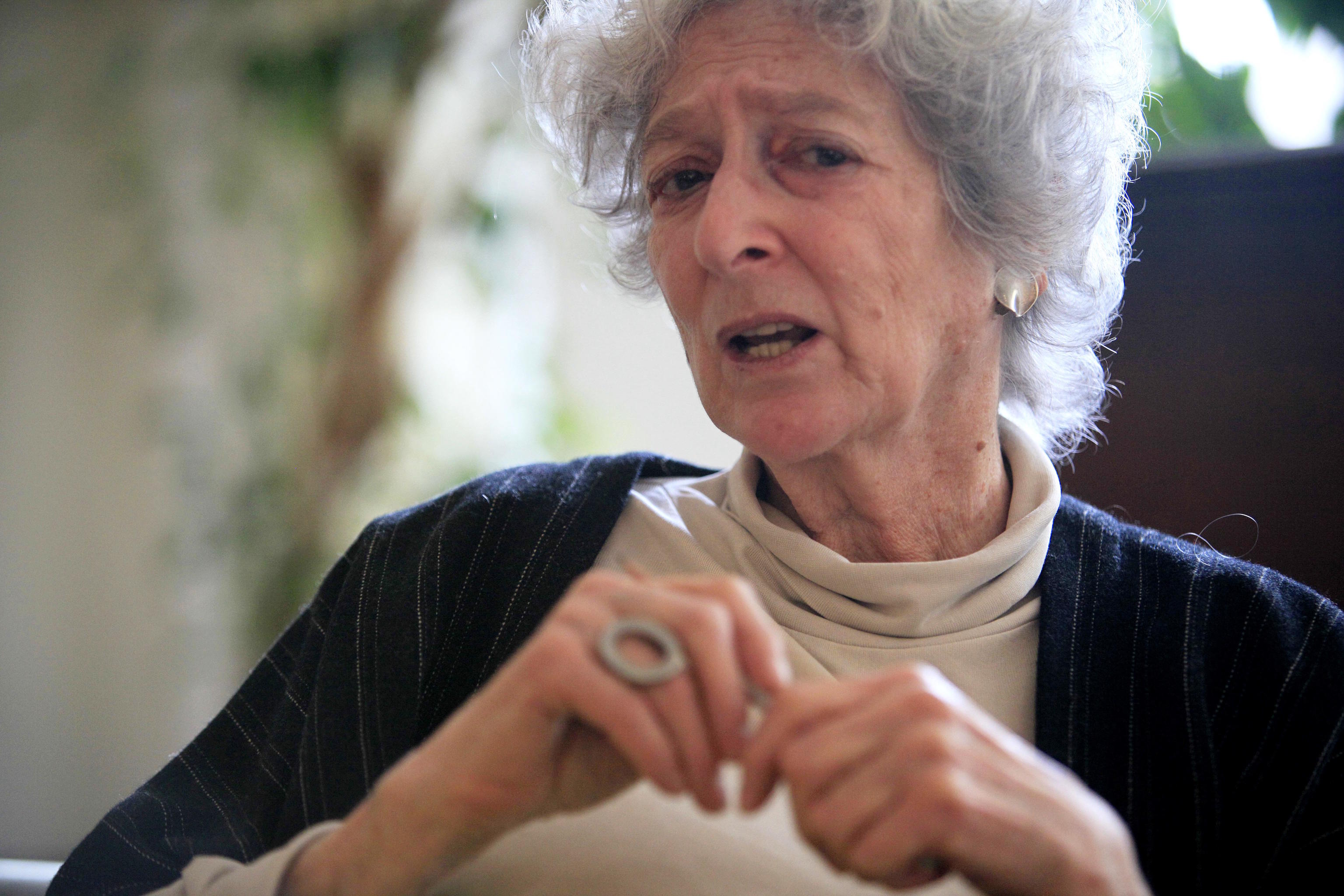Segal, a longtime resident of Manhattan's Upper West Side, died in her apartment after a brief illness, her publisher Melville House said in a statement.
After settling in the U.S. in 1951, Segal wrote novels, short stories, essays and children's books and translated the Bible and Grimms' fairy tales, which featured illustrations by her friend Maurice Sendak. Her life — filtered through memory and imagination — was her greatest muse. "Other People's Houses," released in 1964 and originally serialized in the New Yorker, closely followed her childhood in Austria, her years in foster care in London during World War II and her arrival in New York, where the growing familiarity with the city's sights and sounds — "charged thus upon the air" — makes the "alien into a citizen."
"Her First American" continued her early experiences in the U.S., while "Lucinella" was a comic novella inspired by her time in the 1970s at the Yaddo artist retreat in upstate New York. Segal, who taught at Columbia University, Princeton University and several other schools, satirized academic life in "Shakespeare's Kitchen."
In 2019, she compiled her fiction and nonfiction in the anthology "The Journal I Did Not Keep," in which she summarized the importance and imperfection of recapturing the past.
"I believe that the act of remembering and telling the story of what we remember will always be to some extent fatal to the thing remembered," she wrote. "So what really happened?"
Her many admirers included such author-critics as Cynthia Ozick, Vivian Gornick and Alfred Kazin. In 2008, she was a Pulitzer Prize finalist for her novel "Shakespeare's Kitchen." The American Academy of Arts and Letters inducted her in 2023.
Gornick would cite her "ironic intelligence" and "gift for detachment." In her fiction, Segal set a tone that was even, objective and occasionally cutting, like her description of an artist in "Lucinella" who "tends to mumble her words inside her mouth, so as to keep the option of eating them." She could also be intimate and familiar, with such recurring characters as her alter ego Ilka, a Viennese refugee; and Carter Bayoux, a Black intellectual with whom Ilka has an affair in "Her First American."
Her narratives were often sustained through passages of overheard conversation, whether at a literary cocktail party in Harlem or a gathering of faculty members in Connecticut. Several stories in her 2023 collection "Ladies' Lunch" were structured around the midday meals of friends in advanced old age who share memories, regrets, fears and everyday concerns.
"I like writing dialogue," she told the online publication The Millions in 2019. "I like it better than explaining. I'd rather have a character develop and express him or herself through dialogue than explaining what they're thinking. It's a preference. I like how we discover and uncover ourselves through dialogue. I tell my students, you see any two people together, walk behind them, listen, get the tone of their voice."
Besides her books, Segal wrote for The New York Times, The New Republic, the Forward and other publications. The children's story "When Mole Lost His Glasses," with drawings by Sergio Ruzzier, was adapted into an educational video featuring Spike Lee and then-New York Knick Stephon Marbury.
Segal married the literary editor David Segal in 1961 and had two children. Her husband died of a heart attack in 1970.
She was born Lore Groszmann in Vienna in 1928, and grew up in a prosperous neighborhood until the Nazis annexed the country a decade later and antisemitism drove her family to ship her off on the Kindertransport to London, a time Segal and her mother would discuss in Mark Jonathan Harris' Academy Award-winning documentary "Into the Arms of Strangers."
Separation somehow empowered her. Inquisitive and often impulsive, she wrote so many letters to British authorities that they granted her parents the rare privilege of letting them join her in London, where they worked as domestic servants. Lore stayed with a series of families, including one whose incomprehension of her past inspired her first real storytelling.
"It seemed to me they had no idea of what it was like to live in Vienna under Hitler," Segal told The Associated Press in 2011. "They were asking me questions that didn't seem to be relevant. They had some profound lack of information. So I got hold of one of those little exercise books, homework books. I filled the 36 pages in German with the story, which is essentially the story of 'Other People's Houses.'"
After the war, Segal graduated from the University of London's Bedford College and lived briefly in the Dominican Republic — where other family members had settled — until allowed in the United States. Before becoming a writer, she discovered the various careers she was not meant for: She was a "bad file clerk," a "bad secretary" and "pretty bad textile designer."
Writing, at first, also didn't seem to work because she believed she had nothing to say. She had never been in love and thought "no big things" had happened to her, not even during the war. Her breakthrough came in a class at the New School for Social Research in New York.
"After the class we all kept meeting and doing our own creative writing class," Segal told the AP. "And somebody said to me, 'How did you get to America?' And I began to tell the stories. And there was that experience, of people listening. It was lovely. Nobody had ever done that. Most people don't have that experience, their story being valued."
